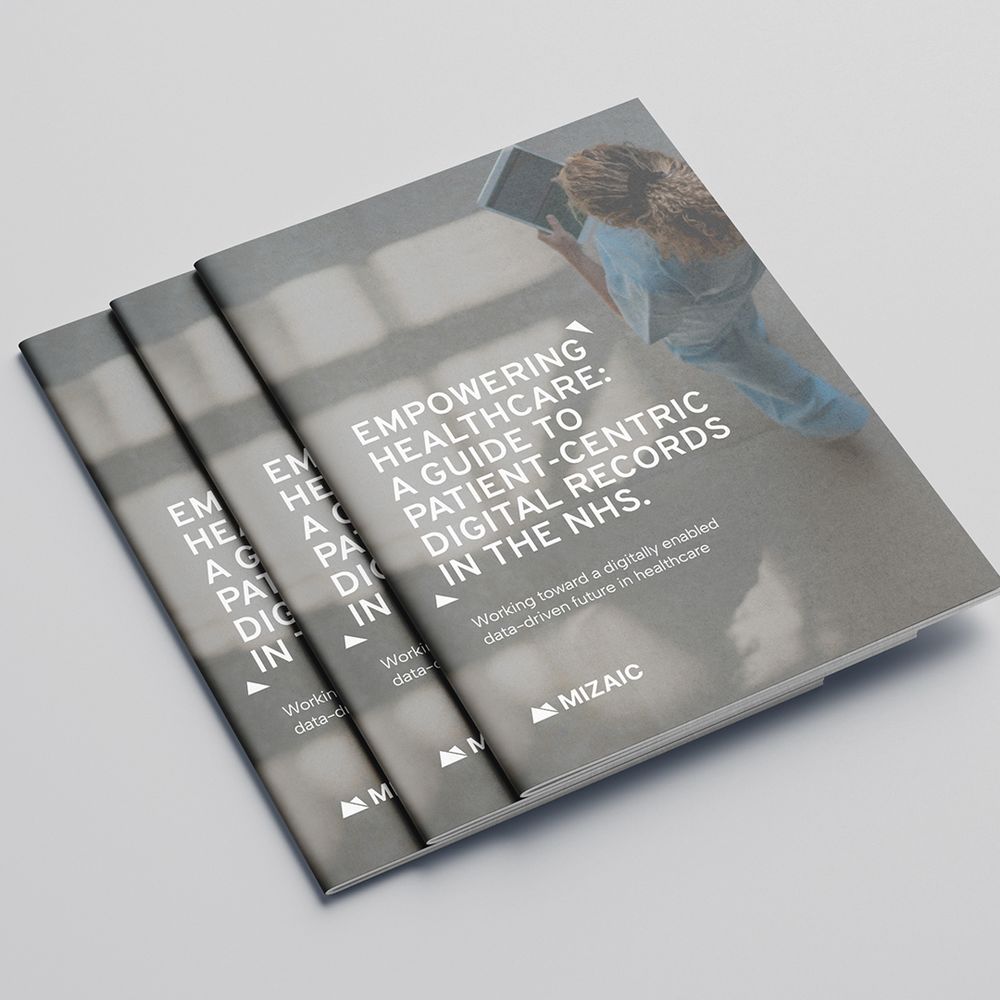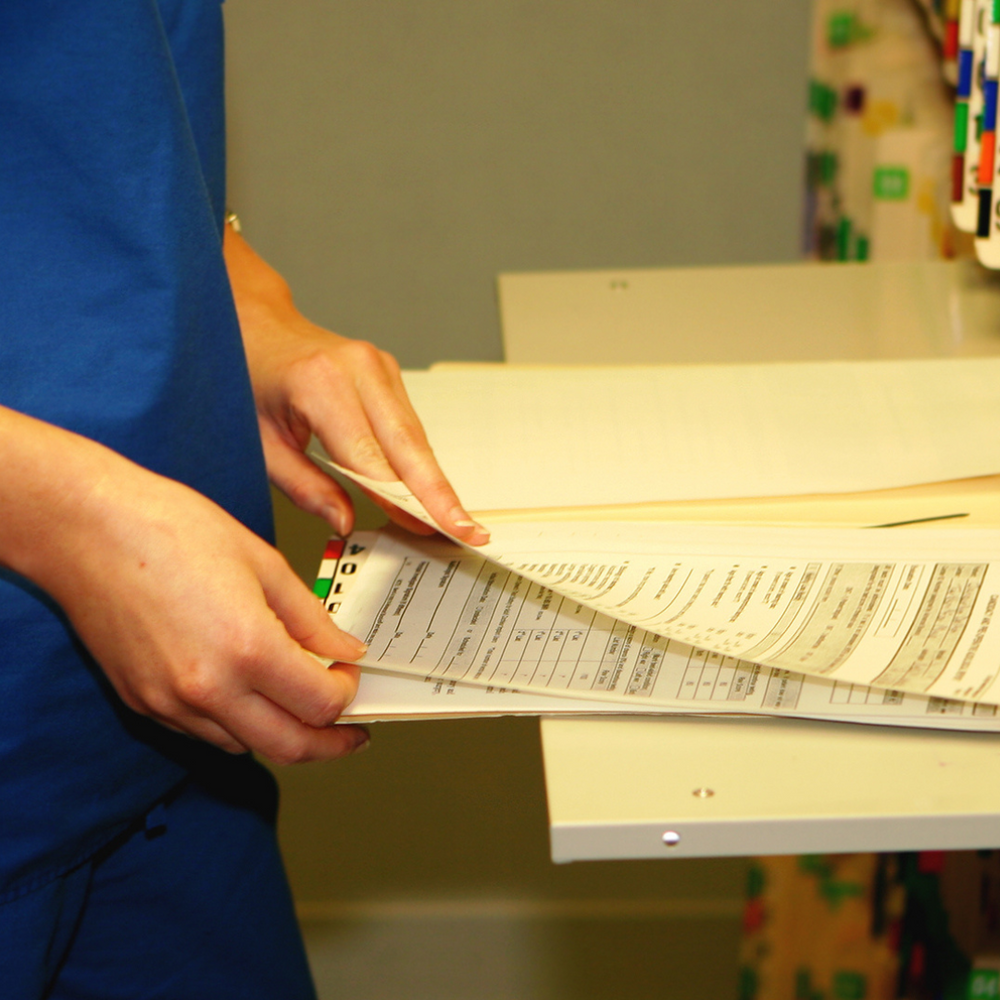
Welcome back to our quarterly blog, The Health Check, in which we bring you the latest insights from the healthtech sector. Over the past three months, the NHS' digital transformation challenges, substantial expenditures on medical record storage, and unmet government targets for digital prescribing have dominated discussions.
On a brighter note, we're pleased to report the NHS is making strides in the deployment of electronic patient record (EPR) systems in hospitals, meeting its targets. Dive into our November edition to stay up-to-date on the sector's latest developments that have caught our attention. Whether it's the hurdles or the milestones, we've got you covered with a comprehensive update on the noteworthy events in the healthcare landscape.

Digitally enabled patient care is on track for success
The NHS reported it has met the government’s target for 90% of Trusts adopting electronic patient record (EPR) systems in hospitals ahead of December 2023, following Hillingdon Hospital and Sheffield Health and Social Care going live this month.
EPRs are a key system in enabling an active digital patient record, managing day-forward patient encounters, and improving efficiency in managing patient pathways throughout hospitals. This marks a real step forward for the NHS in its quest for digitally enabled patient care.
With EPRs in place, more investment and resources will become available to focus on other competing technologies, like electronic document management systems (EDMS), that will enable further efficiencies and insights using historical patient data – something that EPRs don’t hold.

The government extends target for digital prescribing to 2025
In other goal-focused news, the UK government's commitment to eliminate paper prescribing in hospitals by 2024 faced a setback. Initially targeting nationwide implementation of digital prescribing – e-prescribing – across the NHS by 2024, the government now concedes this goal will not be met.
Citing reasons for the delay, including poor digital maturity and insufficient funding, the Department of Health and Social Care has opted to extend the deadline to 2025. This comes after the government's optimistic statement in November 2020, claiming it was "on course" to eliminate paper prescribing and anticipating that 80% of hospitals would have electronic prescribing and medicines administration (ePMA) in place by March 2021.
The revised timeline emphasises the challenges of integrating advanced technology into healthcare practices, while addressing resource constraints, prompting a call for additional efforts to meet the updated target.

US-owned tech giant Palantir wins £330 million NHS contract amid controversy
The awarding of a £330 million contract to US tech company Palantir for the NHS new data platform has stirred controversy in the UK. In a five-year deal, Palantir, along with Accenture, will develop a federated data platform (FDP) aimed at integrating diverse data systems within the NHS to enhance patient care.
While health officials argue the platform will streamline information and improve patient experience, critics express concern over Palantir's involvement. The worry centres around a US company's potential influence over Britain's NHS, which is highly valued by the public.
To address privacy concerns, the government awarded a separate contract for privacy-enhancing technology, emphasising that Palantir would not hold or access NHS data, which would remain within the UK. The controversy highlights the delicate balance between technological advancements and safeguarding national healthcare systems.
Having previously witnessed the challenges of delivering projects on a national scale within the NHS, we will watch with keen interest not only how this is delivered, but more importantly what tangible benefits and outcomes this large investment yields.

A £30 million investment in innovative technology for the NHS
The government is set to invest £30 million in innovative medical technology, which is poised to alleviate pressures on the NHS and enhance patient care across England. The funding, available to integrated care systems (ICS) in each region, aims to leverage the latest medical technology to reduce waiting lists, expedite diagnoses, and introduce novel approaches to patient treatment.
Potential applications include virtual wards for at-home patient care and wearable devices for remote monitoring of chronic conditions. This initiative aligns with the broader goal of supporting the NHS during winter pressures and empowering local healthcare organisations to deliver more efficient and effective services. The investment signifies a strategic move towards integrating cutting-edge technology into healthcare, promising improved patient outcomes and streamlined healthcare delivery.
We welcome this move with open arms and hope the same investment will be made in technology like EDMS.

NHS spent more than £1bn in five years storing medical records
In October, national newspaper The Times reported that the NHS had spent more than £1 billion in the last five years on storing medical records, revealing a significant financial burden on the health service. Despite the NHS' commitment to achieving a "paper-free at the point of care" system by 2020, hospital trusts are grappling with extensive paper files, leading to the necessity of renting off-site storage units – many of which are unfit for purpose.
The latest analysis of NHS England estates data, provided to the Times Health Commission, disclosed that hospitals spent more than £234 million on medical records storage in the year leading to April 2022. This included approximately £175 million for on-site storage and more than £59 million for off-site storage. The financial strain encompasses heating, lighting, staff, furniture, and stationery expenses, in addition to rental costs for these facilities.
This is a significant drain on NHS resources that could be better spent on patient care and improving healthcare services. And while the data might point to the fact that some Trusts are “paperless”, we have seen first-hand that this is not the case. Read our recent blog to find out why.
Get in touch
If you’d like to be the first to receive the latest industry news and updates, follow us on Twitter or Linkedin.
In the meantime, if you’d like to know more about who we are, or our leading EDMS platform, get in touch with our team.
Related posts

guide
Empowering healthcare: A guide to patient-centric digital records in the NHS

guide
Building the economic case for an NHS EDMS guide

case study
Helping Northumbria Healthcare NHS Foundation Trust digitise 1m+ patient records

case study
Barnsley Hospital achieves digital excellence with partners Mizaic, System C and Iron Mountain

case study
Hillingdon Hospitals NHS Foundation Trust transforms healthcare infrastructure

case study
Helping Northampton General Hospital NHS Trust digitise 200,000+ medical records

case study
London North West University Healthcare NHS Trust celebrates 170,000+ digitsed records

event
Northumbria Health Records Showcase 2024

event
Northampton Health Records Showcase 2024

